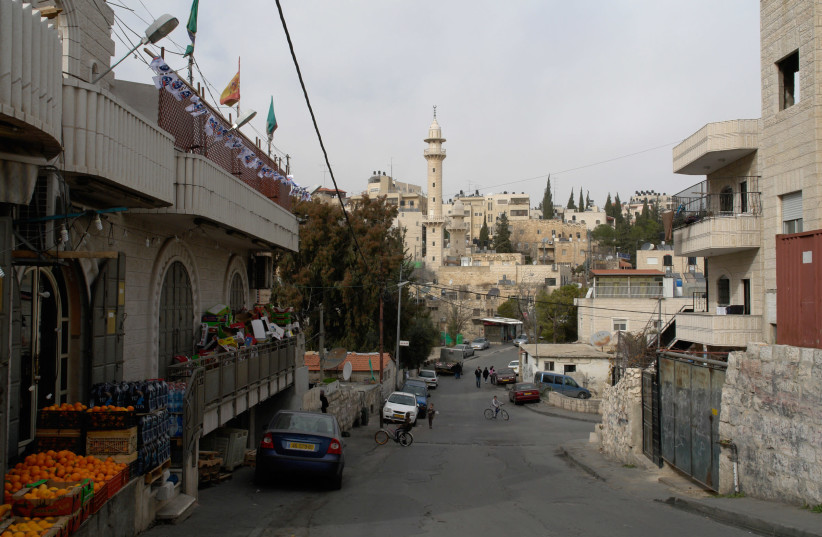What do eastern Jerusalem’s Palestinian residents want for the future?
A decline in the percentage of east Jerusalemites who would prefer to hold Palestinian citizenship in a permanent peace agreement, and an increase in the preference for holding Israeli citizenship – these are among the major findings of a recent survey of 1,000 Palestinian residents of east Jerusalem. The survey was conducted by the Palestinian Center for Policy and Survey research, led by Khalil Shakaki (Ramallah) after the November 2022 elections, closely followed by the formation of a right-wing government by Benjamin Netanyahu.
The survey found that among these residents, satisfaction with the services provided by Israel and the Jerusalem Municipality has increased, while concerns about living conditions in any future Palestinian state have also increased.
The poll was conducted following the electoral victory of the Likud and extreme right-wing parties as negotiations to form a purely right-wing government got underway. All the while, home demolitions and attempts to force some east Jerusalem residents to evacuate their homes – because the land belonged to Jews before 1948 – continued apace. Also, tensions rose at the al-Haram al-Sharif (Temple Mount) and al-Aqsa Mosque due to the increased number of visits by religious Jews, some of whom prayed openly, undeterred by the Israeli police.
The survey had two goals. One was to identify the current problems and concerns of Palestinians living in east Jerusalem under the existing political and living conditions and to identify their views and likely patterns of behavior in any future political agreement. The second goal was to compare the findings of the survey conducted in 2010 with the current findings in order to identify areas of change and their political implications.
While there is a clear absence of trust in the policies and plans of the Jerusalem Municipality, including a strong belief that there is discrimination against the Arabs, there is also a significant rise in the level of satisfaction with the services provided by the municipality and other aspects of life in east Jerusalem.
 Wadi al-Joz in east Jerusalem (credit: V_KATSON/WIKIMEDIA COMMONS)
Wadi al-Joz in east Jerusalem (credit: V_KATSON/WIKIMEDIA COMMONS)Also, there is a significant rise in the percentage of those who, when confronting problems, seek help from Israeli government agencies or institutions. Despite this, east Jerusalemites continue to view the security fence that separates them from the West Bank as a big problem.
HOWEVER, THE survey indicates their unwillingness to participate in future Palestinian parliamentary and presidential elections, leading to a significant increase in the rate of non-participation compared to 2010. This is at odds with their consensus agreement not to participate in the Jerusalem municipal elections – even if encouraged so to do by the Palestinian Authority.
In addition, Palestinians in east Jerusalem are significantly more worried about a scenario in which they would fall under Palestinian sovereignty if a permanent peace agreement were implemented. This has led to a notable decrease in the number of those who would prefer to become Palestinian citizens, and a rise in the percentage of those who would prefer to become Israeli citizens in such circumstances.
East Jerusalemites are often left with no choice but to turn to west Jerusalem for employment and business opportunities. This has strengthened the ties between east Jerusalem and the Israeli economy, leading to other highly significant changes.
What are east Jerusalem’s Palestinian residents happy about?
Whereas an overwhelming majority of the residents believe that discrimination in the delivery of municipal services exists between Arabs and Jews, the majority is satisfied with basic and health services. However, when problems arise, more than half seek help from family first, followed by Israeli government agencies and institutions. These findings indicate a rise in the percentage of those who seek assistance from these two resources compared to 2010.
East Jerusalem residents are satisfied, or very satisfied, with service deliveries in areas of health (83%), water (82%), electricity (75%), the ease with which they can reach al-Aqsa Mosque and the Church of the Holy Sepulcher (74%), sewage system (73%), the speed with which the fire service arrives (70%), and the speed with which the ambulance service arrives (69%).
They are also satisfied with access to transportation links to Israel (64%), the ease with which they can obtain official birth certificates or other documents from government offices (60%), garbage collection in their neighborhoods (60%), living conditions in general (56%), the ease with which they can obtain documents to travel through Ben-Gurion Airport (52%), and adding the names of their children to their IDs (52%).
By contrast, the level of dissatisfaction is very high regarding obtaining building permits (73% expressed dissatisfaction), level of law enforcement (49%), residential taxes (69%), conditions of roads in their neighborhoods (47%), and access to the West Bank (32%). ■





Comments are closed.